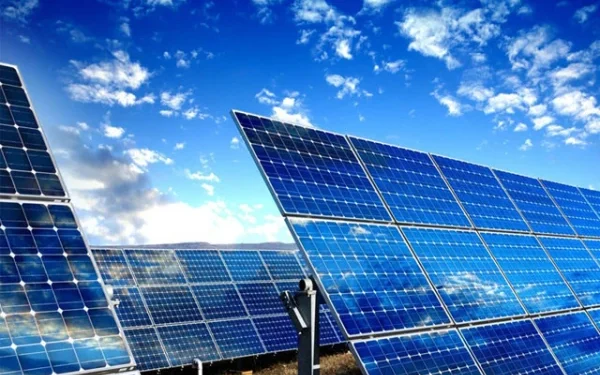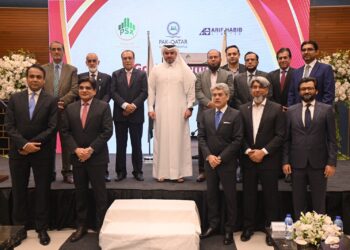In a significant policy shift aimed at encouraging renewable energy adoption and addressing public concerns, Deputy Prime Minister and Foreign Minister Senator Ishaq Dar announced a reduction in tax on solar panels from the existing 18 percent to 10 percent. This landmark decision, made in response to growing demands from the public and stakeholders in the energy sector, was revealed during a session of the Senate of Pakistan, where Dar also spoke on broader economic stabilization, budget strategies, and foreign policy developments.
Relief for Renewable Energy Sector: Tax Slashed from 18% to 10%
Senator Ishaq Dar emphasized the government’s commitment to sustainable energy solutions and green economic reforms by announcing a reduction in the general sales tax (GST) on solar panels. According to Dar, 46 percent of the components required for solar systems in Pakistan are imported, and the previous 18% tax regime was a significant financial barrier for citizens and companies seeking to invest in solar energy.
“We have listened to the people and industry stakeholders. To promote renewable energy and ease financial pressure, the government has decided to reduce the GST on solar panels from 18% to 10%,” he stated.
This decision is likely to reduce the overall cost of solar installations, making it easier for homeowners, farmers, and small businesses to transition to cleaner energy sources. The move also aligns with Pakistan’s national climate change strategy and global sustainable development goals (SDGs).
Public Demand and Industry Pushback Prompted Tax Reform
The decision to slash taxes on solar panels comes amid widespread public outcry and criticism from environmental groups, solar energy companies, and industry experts, who had argued that the 18% tax was a disincentive at a time when Pakistan is facing energy shortages, high electricity costs, and climate-related challenges.
With load-shedding still affecting various regions and inflation squeezing middle-income households, solar energy has emerged as a viable alternative to grid-based power, especially in rural and off-grid areas. The tax relief is expected to stimulate investment in solar energy infrastructure, boost job creation in the renewable energy sector, and reduce Pakistan’s dependence on fossil fuels.
Clarification on Digital Services Tax: Provincial Jurisdiction
While addressing broader taxation concerns during the Senate session, Senator Dar also clarified the government’s stance on the controversial digital services tax. A wave of confusion had arisen recently over the imposition of tax on digital platforms and services such as ride-hailing apps, online marketplaces, and freelance platforms.
Dar clarified that the sales tax on digital services will fall under the jurisdiction of the provinces, not the federal government.
“There was a misunderstanding regarding the digital tax. Sales tax on digital services is the right of the provinces, and they will determine its application,” he explained.
This clarification aims to diffuse tensions with provincial governments and ensure coordinated fiscal policy, especially as e-governance, e-commerce, and the gig economy continue to expand in Pakistan.
PIDCL to Execute Development Projects Across All Provinces
In another important development, Senator Ishaq Dar highlighted the role of the Pakistan Infrastructure Development Company Limited (PIDCL), which is set to implement infrastructure and development projects across all four provinces.
This announcement follows the government’s decision to replace the outdated Public Works Department (PWD) with a more streamlined and efficient PID Cell, expected to bring transparency, efficiency, and accountability to public sector construction and infrastructure initiatives.
“PIDCL will complete development projects in all provinces. The new PID Cell will serve as a better alternative to the existing PWD,” said Dar.
This structural reform is part of the government’s broader plan to overhaul public sector operations and eliminate corruption and inefficiencies in infrastructure spending.
Budget Consultations Continue Amid Economic Challenges
Addressing the ongoing budget deliberations, Senator Dar confirmed that the government is in continuous consultation with allied political parties to finalize the upcoming federal budget. He revealed that over six meetings were held just yesterday with coalition partners to reach consensus on key budgetary measures.
“The government is reviewing several budget proposals. These are collaborative efforts, and our allies are fully on board with our economic recovery vision,” he noted.
He also acknowledged that negotiations with the International Monetary Fund (IMF) are ongoing, particularly regarding measures to offset revenue shortfalls. The goal is to meet IMF benchmarks while ensuring relief for citizens and growth for businesses.
Increased Funding for Sindh Universities
In a bid to strengthen higher education infrastructure, particularly in underserved regions, Ishaq Dar also announced that the government has decided to increase funding for universities in Sindh.
“Education is the backbone of our national progress. We have made the decision to increase funds for Sindh universities to support research, academic excellence, and access to education,” he said.
This measure is being seen as a step toward equitable development, especially since higher education institutions in Sindh have long complained of insufficient federal support.
OIC’s Unified Condemnation of Israel’s Actions
On the international front, Senator Dar informed the Senate that more than two dozen member states of the Organisation of Islamic Cooperation (OIC) had issued a joint statement condemning Israel’s recent military actions against Iran.
“This statement, issued by over 24 countries, condemns the Israeli attack on Iran in the strongest terms,” Dar said.
The move represents growing unity among Muslim nations in the face of escalating Middle East tensions. Pakistan has consistently advocated for peaceful conflict resolution and respect for international law, particularly in the context of Israel-Palestine and Iran-Israel hostilities.
This diplomatic coordination through the OIC aligns with Pakistan’s foreign policy stance of supporting Muslim solidarity and regional peace-building.
Economic Stabilization and Forward Vision
Senator Ishaq Dar concluded his Senate speech with an optimistic assessment of Pakistan’s economic trajectory. He said the economy is gradually stabilizing, citing currency stability, increased exports, and controlled inflation as signs of recovery.
“Pakistan’s economy is becoming more stable with each passing day,” he said. “Together, we can bring Pakistan to new heights.”
Despite the significant economic challenges—ranging from debt servicing to inflation, unemployment, and energy crises—the government seems committed to progressive tax reforms, investment in renewables, and enhanced public services.
Conclusion: A Progressive Step for Clean Energy and Fiscal Prudence
The decision to reduce the sales tax on solar panels is a timely and progressive step toward renewable energy adoption in Pakistan. It demonstrates the government’s responsiveness to public concerns and its strategic shift towards a greener and more sustainable energy future.
Senator Ishaq Dar’s comprehensive Senate address covered key issues affecting Pakistan’s domestic and foreign policy landscapes—from energy reforms and tax clarifications to budget negotiations, infrastructure development, and diplomatic alignments.
As the government prepares to present the new budget and continue IMF negotiations, these announcements signal a clear intent to balance fiscal responsibility with social and economic development.

























